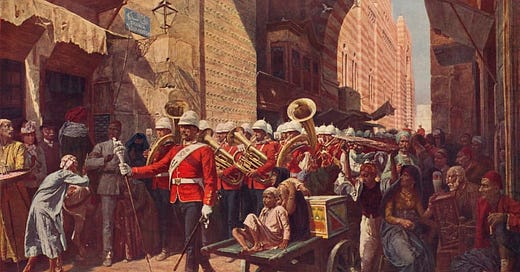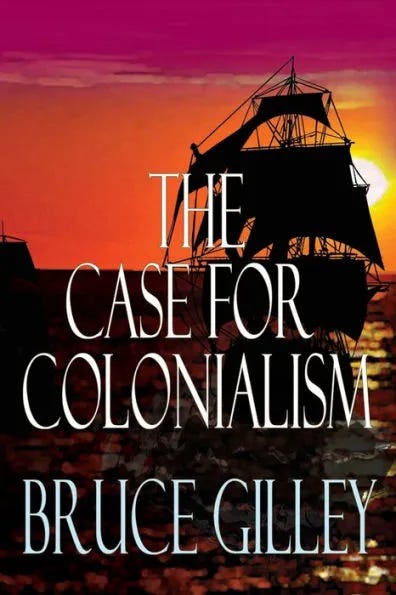My commentary of February 9, 2024, “Western moral reckoning for colonialism,” was based on a 2023 book by Nigel Biggar, Colonialism: A Moral Reckoning. In writing the commentary, I came across reference to a 2023 book by Bruce Gilley, The Case for Colonialism.1 Today’s commentary consists of my reflections on Gilley’s book.
At the outset, Gilley makes clear that he is writing of nineteenth century European colonialism, in which England, France, Belgium, and Germany were the leading forces. He considers nineteenth century European colonialism to be different in purpose from the initial period of European colonialism in the sixteenth century, which was led by Spain and Portugal. It turns out that he especially admires the German and English brands.
As we found with Biggar, central to Gilley’s defense of colonialism is his view that colonialism involved much more than force and violence. He writes that colonialism in the nineteenth century became “the settlement of ideas …



